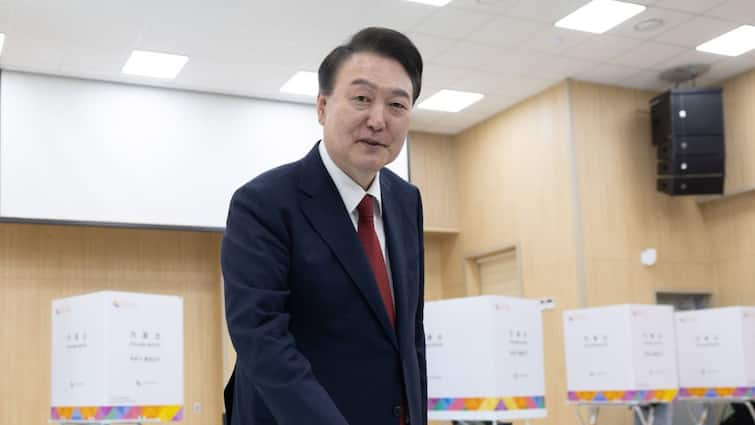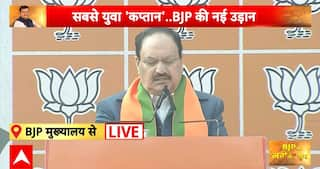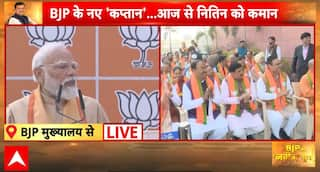Impeached South Korean President Yoon Suk Yeol Arrested, Officials Use Ladders To Reach His House
Yoon was holed up for weeks while being investigated on insurrection charges after an attempt to impose martial law in December.

South Korea News Today: South Korean authorities have arrested impeached President Yoon Suk Yeol in their second attempt to detain him. Yoon was holed up for weeks while being investigated on insurrection charges after an attempt to impose martial law in December.
A court had granted an extension to a previous warrant, following a failed arrest attempt earlier this month.
Investigators had to use ladders to enter his residence compound in after clashes broke out when his guards blocked the main gate, news agency Reuters reported. The main road in front of Yoon's residence was completely blocked off with police bus barricades early Wednesday. Visuals from the spot showed a series of black SUVs leaving the presidential compound amid police escorts.
In a video message, Yoon said the "rule of law has completely collapsed" in South Korea but said he was complying with the detention warrant to prevent clashes between law enforcement officials and the presidential security service, AP reported.
Kim Sung-hoon, the acting chief of the Presidential Security Service, was also arrested for blocking their initial attempt to arrest Yoon Suk Yeol.
Also Read: Tulsi Gabbard To Kash Patel: Trump Picks Facing Confirmation Hearing This Week For Top Jobs
South Korea Martial Law
South Korea’s constitution gives the president the power to use the military to keep order in wartime, war-like situations or other comparable national emergency states, as per AP. Martial law powers can include suspending civil rights such as freedom of the press and assembly and temporarily limiting the powers of the courts and government agencies.
The impeachment motion against Yoon alleges that he imposed martial law far beyond his legitimate powers and in a situation that did not meet the constitutional standard of a severe crisis. The constitution also doesn’t allow a president to use the military to suspend parliament. The motion argues that suspending political party activities and deploying troops to seal the National Assembly amounted to rebellion.
Related Video
Breaking News: BJP’s New National President Pays Tribute to Party Workers and Leadership







































